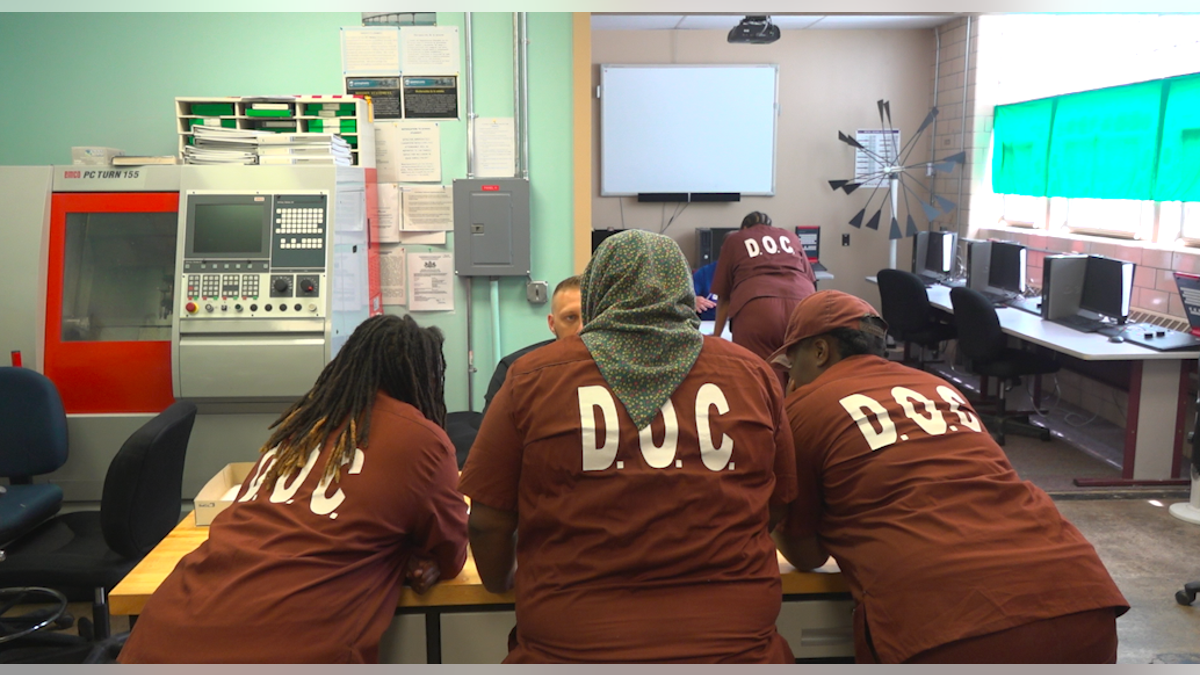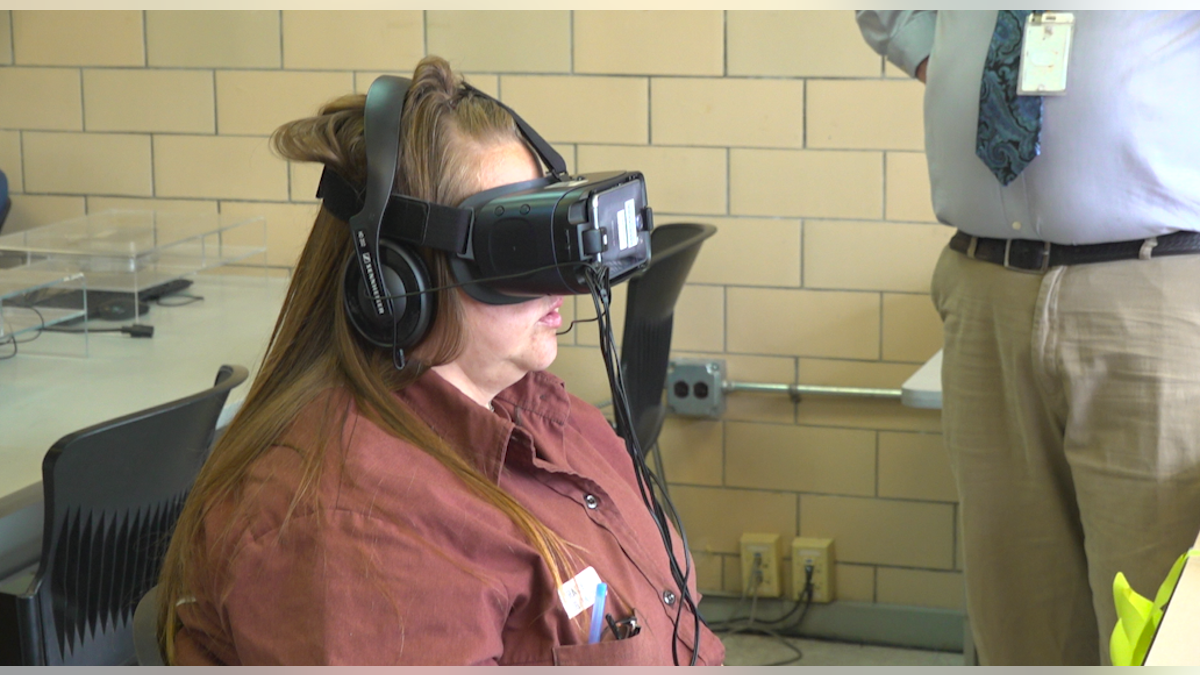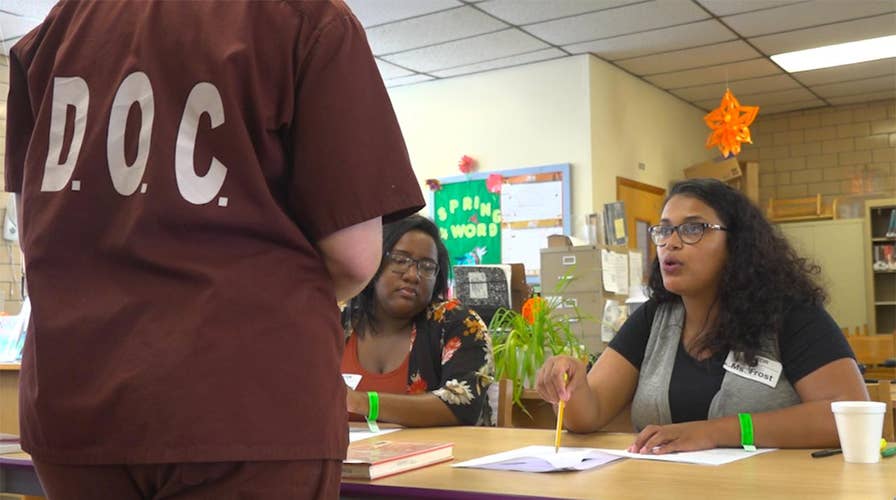Employers turn to an unlikely group for workers: Ex-cons
A tight job market spurs companies to look at ex-cons to fills slots for workers
MUNCY, Pa. -- Shawn Baker, a former nurse, served eight years in prison for aggravated assault. She found a job just weeks after she was released in 2017, thanks to a career fair at Muncy State Correctional Institute.
Baker was once an anomaly. But now, thanks to new programs designed to help inmates integrate into society, more and more ex-cons are quickly entering the job market after they are released from prison.
Now, Baker is a peer specialist at Sisters Returning Home, a non-profit that supports women in their reentry journeys. Every day, she connects and inspires women who like herself have served time.
“If I share my story with them, then I believe they’ll be inspired, too,” said Baker.
KIM KARDASHIAN TO STAR IN CRIMINAL JUSTICE DOCUMENTARY
In today’s tight job market, when companies are struggling to find workers because of a low unemployment rate, more employers are turning to unconventional programs and looking for workers in unusual places -- including behind bars.

Steven Blazer, of Surge staffing, recruits inmates at a recent job fair. (Fox News / (Talia Kirkland))
“There are companies out there who are willing to hire ex-offenders I have a whole resource list,” said Baker. “I tell the ladies all the time you [just] have to be willing to do the footwork.”
Pennsylvania created a program three years ago that actively helps ex-cons find jobs. All 24 state prisons host annual career fairs as a push to get inmates nearing release ready for when they return home.
Other states have similar programs but they do not go as far as Pennsylvania's effort to help integrate recently released inmates. Earlier this year in South Dakota, 150 inmates attended a job fair hosted by the Springfield prison.
Criminal justice officials hope Pennsylvania's novel approach to prison reform will become a national model.
Cappy Pickett, a guidance counselor at Muncy Correctional Institute, said criminal justice reforms and a shrinking labor pool has made employers more willing to consider former inmates.
“A lot of our ladies did not have the resources or support they needed when they came to us, so it is imperative we send them back out into society with the tools they need to succeed,” said Pickett.
Ex-offenders and other workers who often struggle to find jobs are now getting a second look, according to a report by the Society for Human Resource Management, which surveyed more than 2,000 corporate managers and HR executives nationwide on their attitudes about ex-offenders.
Steven Blazer, a recruiter with Surge staffing in Schuylkill County, Penn., said the fair held last week at the women’s correctional institute in Muncy, Pa., was his third.
“It is an untapped group of employees that a lot of companies overlook, and that’s a mistake because these individuals want to work and can be productive on the job,” said Blazer.
YOUTH SOLITARY CONFINEMENT CONTINUES DESPITE ONGOING CRITICISM
The U.S. Bureau of Labor Statistics doesn’t explicitly track unemployment rates among ex-felons but the Prison Policy Initiative estimated it was about 27 percent last year. Pennsylvania officials hope the new program will help more former prisoners find work and that it help will cut down on the recidivism rate.
"We have had the fortunate pleasure of hearing back from some of our women once they've been released from SCI Muncy and it is working," Pickett said. "There are people who are getting employment and they are very happy with the progress they've made."

Unemployment among ex-felons isn’t explicitly tracked by the U.S. Bureau of Labor Statistics, and it was estimated at 27 percent last year by the Prison Policy Initiative.
Many economists believe there is a social and economic benefit to hiring individuals who were recently released from prison.
“Convicts who are released into a tight labor market are less likely to re-offend because they are able to secure employment,” said Dr. Ioana Marinescu, assistant professor at the University of Pennsylvania’s School of Social Policy and Practice.
“This helps reduce crimes rates,” said Marinescu.
But there are also drawbacks.
"There can be benefits to hiring people coming out of incarceration but you have to be careful because they are riskier people," said professor Paul Harrington of the Center for Labor Markets and Policy at Drexel University.
Normally, employers are reluctant to hire ex-cons because of legal liability. But when the labor market becomes tight, it creates a demand for workers, and companies are more willing to take chances.
“Most of the inmates I interview want to work and are ready to prove themselves,” said Blazer, “and if that the case, we want to talk to them.”

Inmates could "visit" places on the outside to prepare for release through virtual reality goggles.
At a recent prison job fair, a dozen or so tables were set up throughout the education building. Inmates gathered handfuls of flyers from recruiters, met one-one with employers, and sat down with housing directors to discuss life after prison. Virtual reality goggles were available so inmates could tour places on the outside to prepare for release.
TRUMP SIGNS CRIMINAL JUSTICE REFORM BILL
Known as the resident makeup artist, Ayanna hopes to attend cosmetology school and secure a job in the beauty industry when she returns home.
“I want to be a makeup artist and start my own line of products,” said Ayanna, a 21-year-old who recently graduated from the prison’s GED program. Citing protocol, prison officials declined to release the last names of inmates interviewed for this story.
“Makeup is just what I do,” said Ayanna. “Even here I mix chalk with the three eye shadows we are given and make new colors for the ladies.”

On Friday, June 7, 2019 inmates at Muncy State Correctional Institute attended a job fair. (Fox News / (Talia Kirkland))
CLICK HERE TO GET THE FOX NEWS APP
A series of new laws the past two years, mostly aimed at sealing old criminal records or requiring employers to interview potential hires before asking about criminal records, is helping ex-cons find jobs.
Programs like the Work Opportunity Tax Credit for employers, which offers anywhere up to a 25 percent tax credit, or the Federal Bonding Program, which compensates employers if they experience theft or loss due to an employee’s dishonesty, also make it easier for employers to consider hiring ex-offenders.
Mostly, employers can help ex-offenders while also helping themselves, said Blazer.
“I’ve been pleased with the quality of candidates I’ve met so far,” he said, “They have the desire to work and are obtaining the skills [here] that we are looking for.”


